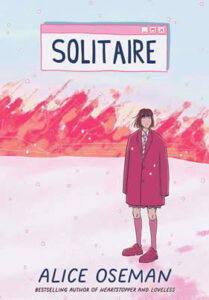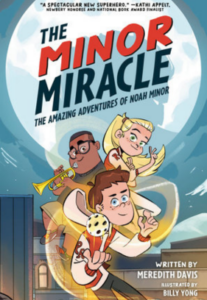It’s 1998: the movie Titanic just won 6 Oscars, Ally McBeal is on TV, and Chumbawamba is tub-thumping on the radio. Oh, and 17-year-old Jess Flynn is in her junior year of high school, hoping for a year with a little less drama.
The problem is, Jess’ life is always filled with drama. It feels as if every year there’s some kind of unexpected and, many times, oddly disastrous thing swirling around in her story. For instance, her family has survived a tornado; her house was robbed; her beloved sister, Sara, came down with a completely out-of-the-blue, horrible illness. So Jess often feels like her life is like a bad movie script. And she’s the plucky, quirky teen heroine right out of central casting.
But this year, there are even odder things happening. And that doesn’t even include the crush Jess is feeling for her childhood best friend, Tyler. I mean, that’s odd in its own way, too. But it’s a good odd as far as Jess is concerned. She likes the funny, sweaty feelings she gets when their hands accidentally touch and when Tyler says things that sound almost like he’s flirting.
Is he flirting?!
Anyway, it’s the other odd things that have Jess worried. For instance, she’s been hearing these indistinct chanting voices sometimes. And Amber, one of her closest friends, dropped something strange-looking the other day. She said she found it in her father’s briefcase: a device made out of metal and glass that had a logo of an apple with a bite out of it printed on the metal side. And when Jess started asking questions, Amber and Kristen—Jess’ other good friend—got all nervous and quickly walked away.
Oh, and how about this for odd: Jess just discovered that her dog was replaced with a look-alike. She knows what her dog looks like, and this wasn’t it. But even her parents got twitchy and nervous over this observation. And now that Jess has started looking for odd things, she’s finding all sorts of tiny changes and weird occurrences that shouldn’t be.
As she starts adding things up, watching people around her more closely, and remembering stuff that now seems to have a new meaning, Jess can’t help but wonder if everything in her life is something other than what she always thought it was.
Is her life even real?











